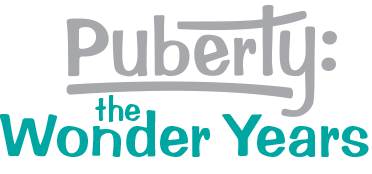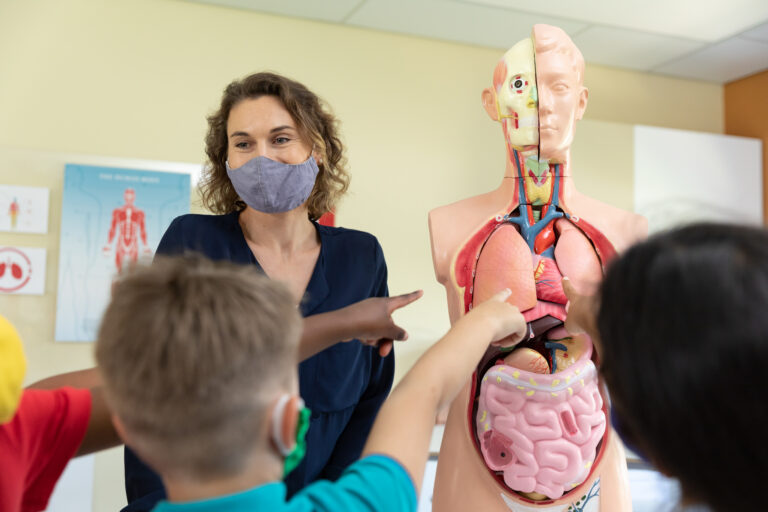Introduction
Sex education empowers young people to make choices about their bodies, but policies and support systems can make access difficult for young people with disabilities. Many people with disabilities are uniquely dependent on support people, such as parents or care providers, for support with daily tasks, which can be a challenge. Parents or care providers may not be supportive of a young person’s autonomy and sexual development, which can make certain topics feel unsafe for students with disabilities. Working with a team can create a safe space for youth with disabilities to talk about concerns with trusted adults. Communication with support people should focus on creating an inclusive environment and should not affect education content or confidentiality in any setting. Educators can help students develop strategies to navigate difficult conversations with parents or caregivers and find other safe resources, if needed. Reinforce messages that affirm students’ right to make choices about their body and relationships regardless of ability.
Support People at School
Many people with disabilities have teams of people for support in different spaces. While at school, some students with disabilities may have an aide or interpreter with them. Students may be pulled from class for therapies or extra support. If a support person is in class, ask if seat placement or other accommodations can help ensure a smooth experience. A support person’s job is to facilitate access or provide specific care. However, whether or not a student has a support person, lessons should be as accessible and inclusive as possible. A support person should never impinge on a student’s autonomy or privacy. Teach students that support people help or guide but should not take on intimate or authoritative roles. When working with a support person, the student should still initiate, respond to, and make decisions about interactions to the extent possible. Disability etiquette is always important, so that everyone feels welcome. In communication with parents, be specific about lesson adaptations to support accessibility and create an inclusive environment.
Care Providers and Medical Professionals
Healthcare is necessary for anyone who has health concerns, has sex, or is planning pregnancy. While people with disabilities are expected to turn to care or medical providers for support, few providers know how to treat people with disabilities as holistic beings. Supportive providers are especially critical as infection, abuse, or pregnancy may be more difficult to detect in people with disabilities. Health concerns are likely to be caught at later stages because of access barriers, which leads to worse outcomes in people with disabilities. Sexual and reproductive health exams may require tools, procedures, and positioning that can be a particular challenge for people with disabilities. If possible, educate students about possible modifications and accommodations that clinics may provide to support students’ needs. Offer strategies for reaching out to clinics, such as asking if a site has elevator access or if staff can assist with positioning during exams. When seeing students in your own office, practice disability etiquette, and do what you can to adjust your environment to make students comfortable (i.e. consider lighting, scents, physical layout, fidget toys, et cetera). Provide handouts or notes in large font and clear plain language for easy reference for students. Do not make assumptions about students’ wants or needs regardless of ability, and respect self-advocacy.
Supporting Self-Advocacy in Students with Disabilities
Self-advocacy, which involves recognizing and effectively communicating needs, is especially important for young people with disabilities who face unique challenges. When possible, create opportunities for students with disabilities to practice self-advocacy, but never pressure students to share. While the presence of a support person is not an indication that a student cannot engage in self-advocacy, some students need additional support. If self-advocacy is not appropriate for a student, consider a team approach with others who are familiar with the student’s needs. If appropriate, brainstorm with the student to identify people who could be the best supplementary advocates to ensure a successful classroom experience. Regardless of who is in a student’s support team, include and respect the student throughout the process. As much as possible, ensure student privacy and respect student autonomy. All students deserve sex education that fosters learning and practicing skills that support healthy development throughout the life course.
This post is part 6 of a series on Disability and Sexuality written by guest blogger, Ashira Greenberg. Read part 1, Introduction to Disability and Sexuality and part 7 Intersectionality and Disability.
Notes and Resources:
Working with Support People, Care Providers, and Medical Professionals
- Disability Etiquette, United Spinal Association
- Paraprofessionals: What You Need to Know, Understood
- 10 Easy Changes Teachers Can Make to Facilitate Inclusion, Reading Rockets
- Common Classroom Accommodations and Modifications, Understood
- 4 Benefits of Inclusion Classrooms , Understood
- Our Sexuality, Our Health: A Disabled Advocate’s Guide to Relationships, Romance, Sexuality and Sexual Health, Office of Developmental Primary Care
- Frequently Asked Questions About Disability Resources, UPMC
- Accessible Health Care Self Advocacy Toolkit, Equal Rights Center
Self-Advocacy
- What is Self-Advocacy? UC Santa Cruz Disability Resource Center
- Understanding Self-Advocacy, Learning Disabilities Association of America
- 12 Self-Advocacy Skills for Adults With a Disability or Chronic Illness, The Ability Toolbox
Note on Person-First Language: This post uses Person-First Language as Person-First Language is generally considered to be the most respectful form for professional writing and/or talking about a group of people whose individual preferences are unknown. Individual preferences for Person-First Language or Identity-First Language are equally valid and should always be respected when referring to an individual.



